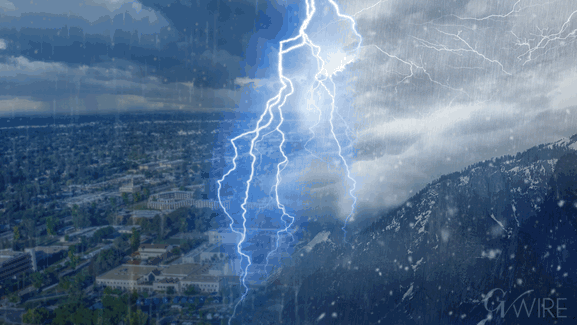Share
|
Getting your Trinity Audio player ready...
|
The rain and snow storms that have pummeled California for weeks have taken nearly two dozen lives and caused billions of dollars in damages to public and private property.

Dan Walters
CalMatters
Opinion
The flip side, however, is that they dropped immense amounts of water on a state that has suffered through severe drought for several years. At one point this month, an astonishing 160,000 cubic feet of water — 1.2 million gallons — was flowing through the Sacramento-San Joaquin Delta every second. That’s enough water to fill a reservoir the size of Folsom Lake, about 1 million acre-feet, in three days and doesn’t count water falling on other regions, such as Southern California.
Whether the storms have ended the drought, however, depends on California’s ability to capture enough water to fill its badly depleted reservoirs and at least begin to recharge underground aquifers that have been terribly overdrafted by desperate farmers.
So far, only a relatively tiny amount of the immense storm runoff has found its way into storage. For instance, just a trickle of the Delta’s heavy flows has been pumped into state and federal aqueducts for delivery to the San Joaquin Valley and Southern California, largely because of rules that limit diversions to protect endangered species such as the 2-inch-long Delta smelt.
Watch: Friant Ramps up Water Releases
Valley Lawmakers Beg for Water to Be Stored
San Joaquin Valley legislators have beseeched President Joe Biden and Gov. Gavin Newsom to relax the rules so that more runoff can be either delivered to farmers or placed in storage, such as the San Luis Reservoir, which is now less than half-full.
“This is no time to be dialing back the pumps,” state Sen. Melissa Hurtado and Assemblywoman Jasmeet Bains, both Democrats from Bakersfield, told Newsom in a letter last week. “After several years of drought and low reservoir levels, it only makes sense to capitalize on wet conditions”
“We have a moral obligation to provide Californians any relief that is within our control,” five Republican congressional members told Biden and Newsom. “Government regulations should not and must not deny our constituents critical water from these storms.”
Water Officials: Our Hands Are Tied Environmental Laws
State water officials, however, say their hands are tied by environmental protection rules requiring that initial winter flows be allowed to flush out the Delta and San Francisco Bay.
What’s been happening, or not happening, during the weeks-long deluge indicates that California needs some new plumbing to take advantage of the periodic “atmospheric rivers” that bring immense amounts of precipitation.
Meteorologists believe that due to global climate change, the state will experience more erratic weather —prolonged periods of drought interrupted by occasional storm events such as the ones California has been experiencing.
That means we need more storage, such as the Sites Reservoir on the west side of the Sacramento Valley that’s been in the planning stage for several decades and sinking basins to recharge aquifers. The long-dormant, $4 billion Sites project now has the ardent support of state and federal officials, as well as some serious money.
Case for a Delta Tunnel
The relatively meager diversions from the Delta now allowed by law, meanwhile, bolster the case for the “Delta Conveyance,” which would allow more water to be diverted into the state and federal aqueducts, and thus into downstate reservoirs, without running afoul of environmental restrictions. The project has kicked around for six decades, first as a “peripheral canal,” later as twin tunnels dubbed “Water Fix,” and now a single tunnel.
California water managers will have another chance to fill reservoirs in a few months, when the immense Sierra snowpack that’s twice the historic average and still growing melts. We can only hope that Mother Nature releases the snowpack’s water slowly enough to avoid destructive floods.
About the Author
Dan Walters has been a journalist for nearly 60 years, spending all but a few of those years working for California newspapers. He began his professional career in 1960, at age 16, at the Humboldt Times. For more columns by Walters, go to calmatters.org/commentary.
Make Your Voice Heard
GV Wire encourages vigorous debate from people and organizations on local, state, and national issues. Submit your op-ed to rreed@gvwire.com for consideration.


















